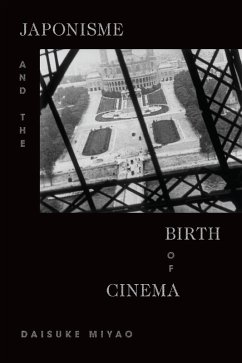In Japonisme and the Birth of Cinema, Daisuke Miyao explores the influence of Japanese art on the development of early cinematic visual style, particularly the actualite films made by the Lumiere brothers between 1895 and 1905. Examining nearly 1,500 Lumiere films, Miyao contends that more than being documents of everyday life, they provided a medium for experimenting with aesthetic and cinematic styles imported from Japan. Miyao further analyzes the Lumiere films produced in Japan as a negotiation between French Orientalism and Japanese aesthetics. The Lumiere films, Miyao shows, are best understood within a media ecology of photography, painting, and cinema, all indebted to the compositional principles of Japonisme and the new ideas of kinetic realism it inspired. The Lumiere brothers and their cinematographers shared the contemporaneous obsession among Impressionist and Post-Impressionist artists about how to instantly and physically capture the movements of living things in the world. Their engagement with Japonisme, he concludes, constituted a rich and productive two-way conversation between East and West.
Dieser Download kann aus rechtlichen Gründen nur mit Rechnungsadresse in A, B, BG, CY, CZ, D, DK, EW, E, FIN, F, GR, HR, H, IRL, I, LT, L, LR, M, NL, PL, P, R, S, SLO, SK ausgeliefert werden.

